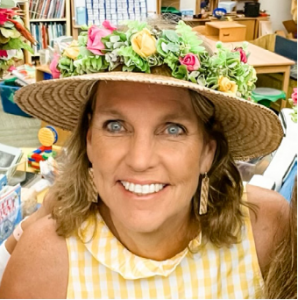Building Relationships With Our Island Home: Three Stories from Kindergarten in Hawaiʻi
by Donna Reid-Hayes
Elder Dr. Walter Soboleff tells us that the seeds of our ancestors are planted within our consciousness. It is this awareness that remains within us and compels us to want to learn more and do more on behalf of our culture and language. It is a longing inherent in us, a legacy of valuing our heritage (The World Forum Foundation Indigenous People’s Action Group, 2020, p. 12).
As early childhood educators, we seek to create authentic and meaningful experiences for the children we learn alongside. We must remember that at its core, “education, in its highest form, liberates human potential through transformational teaching and learning experiences” (Meyer, Maeshiro, & Sumida, 2018, p. 17). As a Native Hawaiian early childhood educator in Hawai‘i, I feel compelled to nurture the children’s emerging sense of place and self to empower them with a strong sense of connection and identity. Although not all the children in my care are Native Hawaiian by blood, they are being raised within a place and a culture that requires each of us to be cognizant of that place and culture. As Meyer (2016) stated, “what will be vital in this century is Culture—a way of being unique to place and people” (p. x). Meyer further clarified that “as a point of history, let it be known that we [Hawaiians] never did privilege” [ideas of race, ethnicity, and blood] as “points of separation” (p. x). There have been efforts to colonize and erase our Hawaiian language and culture for generations (Goodyear-Ka‘ōpua, 2013; Kana‘iaupuni, 2006). My hope as an educator is that each of us—children, educators, and families— will grow to embrace our kuleana, our responsibility and privilege, as people living in this unique and storied place.
 Donna Reid-Hayes, a Native Hawaiian, is an early childhood educator in Honolulu, Hawai‘i. She holds her MEd and EdD from the University of Hawai‘i at Mānoa. Her research centers on how the interweaving of Hawaiian culture- based education and Reggio Emilia-inspired pedagogies has transformed her practice within her kindergarten classroom, as well as her growing sense of indigeneity. Donna utilizes the concepts of mo‘okū‘auhau (genealogy) and mo‘olelo (story) to build understanding of her experiences and pedagogical choices. She believes passionately in the competence and drive of the young child and sees culture and place as having an integral role in their development.
Donna Reid-Hayes, a Native Hawaiian, is an early childhood educator in Honolulu, Hawai‘i. She holds her MEd and EdD from the University of Hawai‘i at Mānoa. Her research centers on how the interweaving of Hawaiian culture- based education and Reggio Emilia-inspired pedagogies has transformed her practice within her kindergarten classroom, as well as her growing sense of indigeneity. Donna utilizes the concepts of mo‘okū‘auhau (genealogy) and mo‘olelo (story) to build understanding of her experiences and pedagogical choices. She believes passionately in the competence and drive of the young child and sees culture and place as having an integral role in their development.